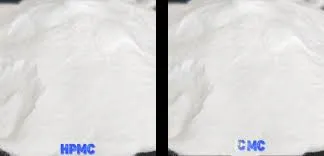
Nov . 09, 2024 12:07 Back to list
Exploring the Applications and Benefits of Hydroxyethyl Cellulose in Various Industries
Exploring the Versatility of Ashland Hydroxyethyl Cellulose Applications and Benefits
Hydroxyethyl cellulose (HEC) is a water-soluble polymer derived from cellulose, which is a natural polymer made from plant materials. Ashland, a leading global specialty chemical company, has developed its own line of hydroxyethyl cellulose products that are widely used across various industries due to their unique properties and versatility. This article explores the characteristics, applications, and benefits of Ashland hydroxyethyl cellulose.
Characteristics of Ashland Hydroxyethyl Cellulose
Ashland hydroxyethyl cellulose is characterized by its ability to dissolve in water to form clear, viscous solutions. This solubility in cold water makes it an ideal thickening and stabilizing agent. One of the key attributes of HEC is its non-ionic nature, which allows it to function effectively in various pH levels and ionic environments without the risk of interacting negatively with other ingredients. Ashland produces several grades of HEC, each tailored for specific viscosity and solubility requirements, making it suitable for a wide range of applications.
The molecular weight of HEC can significantly influence its properties, such as the viscosity of the solution it forms. Higher molecular weight grades yield thicker solutions, which can be beneficial in applications requiring enhanced texture or suspending capabilities. Additionally, HEC is recognized for its excellent film-forming abilities, making it a favorable choice for cosmetic and personal care products.
Applications in Various Industries
1. Cosmetics and Personal Care One of the most prominent applications of Ashland hydroxyethyl cellulose is in the cosmetic and personal care industry. It is used as a thickener and emulsifier in lotions, creams, and gels. Its ability to provide a smooth application and enhance the texture of products makes it a favorite among formulators. Additionally, HEC can help stabilize emulsions and prevent separation, extending the shelf life of beauty products.
2. Pharmaceuticals In pharmaceuticals, HEC is often utilized as a binder and thickener in ointments, gels, and tablets. Its biocompatibility and non-toxicity make it suitable for various drug formulations. Moreover, HEC can aid in controlled-release drug delivery systems, enhancing the effectiveness of medications.
ashland hydroxyethyl cellulose

3. Construction In the construction industry, Ashland hydroxyethyl cellulose is employed as an additive in adhesives, sealants, and mortars. It improves the workability and consistency of these materials, making them easier to apply and ensuring better adherence. HEC also helps retain moisture during the curing process, which is essential for achieving optimal strength in construction applications.
4. Food Industry HEC's thickening properties are also beneficial in food applications. It is used as a food additive to improve texture, stability, and shelf life in various products, including sauces, dressings, and baked goods. Its ability to create a desirable mouthfeel is highly valued in the food industry.
Benefits of Using Ashland Hydroxyethyl Cellulose
The use of Ashland hydroxyethyl cellulose offers several benefits
- Versatility Its wide range of applications across different industries highlights its versatility and adaptability as an ingredient. - Stability HEC provides stability to formulations, preventing separation and improving product quality.
- Enhanced Performance With its ability to thicken, stabilize, and improve texture, HEC enhances the overall performance of products.
- Non-toxic and Biocompatible As a natural polymer, HEC is generally recognized as safe and can be used in products intended for sensitive applications, such as personal care and pharmaceuticals.
In conclusion, Ashland hydroxyethyl cellulose is a multifunctional ingredient with a broad spectrum of applications in cosmetics, pharmaceuticals, construction, and food industries. Its unique properties, coupled with the benefits it offers, make it a valuable component in product formulation and innovation. As industries continue to seek sustainable and effective solutions, the role of HEC in enhancing product performance will likely expand, solidifying its presence in the market.
-
Versatile Hpmc Uses in Different Industries
NewsJun.19,2025
-
Redispersible Powder's Role in Enhancing Durability of Construction Products
NewsJun.19,2025
-
Hydroxyethyl Cellulose Applications Driving Green Industrial Processes
NewsJun.19,2025
-
Exploring Different Redispersible Polymer Powder
NewsJun.19,2025
-
Choosing the Right Mortar Bonding Agent
NewsJun.19,2025
-
Applications and Significance of China Hpmc in Modern Industries
NewsJun.19,2025







